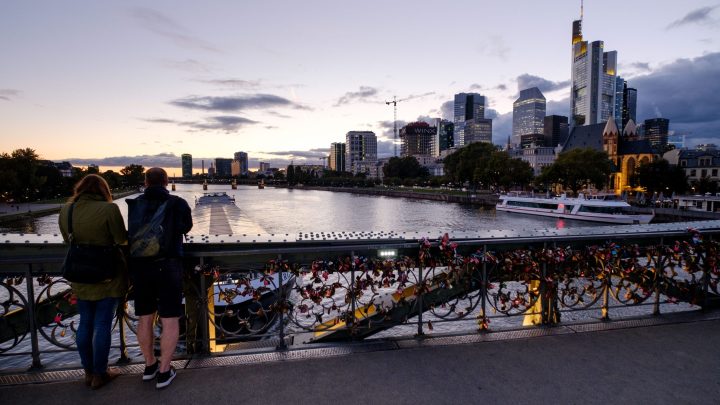
Why Germany’s economic backbone is saying “auf wiedersehen”
Why Germany’s economic backbone is saying “auf wiedersehen”

Germany — once seen as the bedrock of fiscal rectitude — is finding itself on the other side of the ledger. It’s facing a budget crisis amid rising energy costs, urgent calls for immigration reform and more pressing issues.
So what is Europe’s largest economy to do? Marketplace’s David Brancaccio checked in with Stephan Richter, publisher and editor-in-chief of The Globalist. Below is an edited transcript of their conversation.
David Brancaccio: So you think something’s gone wrong in Germany? I mean, it’s Russia that invaded Ukraine, drawing up energy supplies to Germany and shaking European economies. But you think that blaming externalities, as they say, doesn’t tell the whole story?
Stephan Richter: It doesn’t at all, because the problems really started back in 2005, with the famous and now infamous Angela Merkel, who basically did nothing for 15 years in government other than to preserve her own power and stay popular by not taking any tough decisions. And that really has led to a major problem for Germany, because all these problems kept building up. So things are really not good. And Germany mostly lives off the fumes of its past reputation.
Brancaccio: You’re saying that the Merkel administration deferred tough decisions, and now the chickens are coming home to roost?
Richter: Correct, but the government that’s now in charge, Olaf Scholz, of course, the SPD [Socialist Democratic Party] was for most of the years when Merkel was in government the junior partner, so they are co-culpable. And the problem really has been and continues to be that there has been a large consensus to do social spending in Germany and not any infrastructure or other investment — no investment in education, no investment in housing. And it is the opposite of what — I used to live in the United States — what we always think about Germany: that it’s a country that’s planning ahead, that’s using its resources wisely and is trying to make sure that everything works smoothly, and schools and everything are in good shape. And none of the above anymore.
Brancaccio: Now, you recently wrote that the country’s economic backbone is, your word was “fleeing” Germany, leaving Germany. Who are these foundational institutions and why are they taking off?
Richter: It’s very big industrial companies that depend on the cost of energy. And mind you, the reason why the Germans were so nice to Putin for so long is that he gave us dirt-cheap energy. And in an economic and marketplace context, the problem is that was a false positive for Germany, because we’ve been falling out of competitive ranks. You know, if you have a leading industrial country that is dependent on cheap energy in order to excel in world markets, that’s not exactly where you want to have an advanced economy. And yet these large companies still are very powerful in politics and stand in the way of the transformation and restructuring and structural change that needs to happen.
There’s a lot happening in the world. Through it all, Marketplace is here for you.
You rely on Marketplace to break down the world’s events and tell you how it affects you in a fact-based, approachable way. We rely on your financial support to keep making that possible.
Your donation today powers the independent journalism that you rely on. For just $5/month, you can help sustain Marketplace so we can keep reporting on the things that matter to you.











